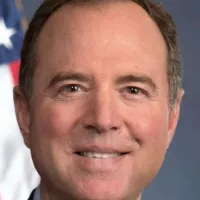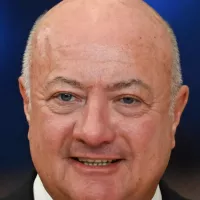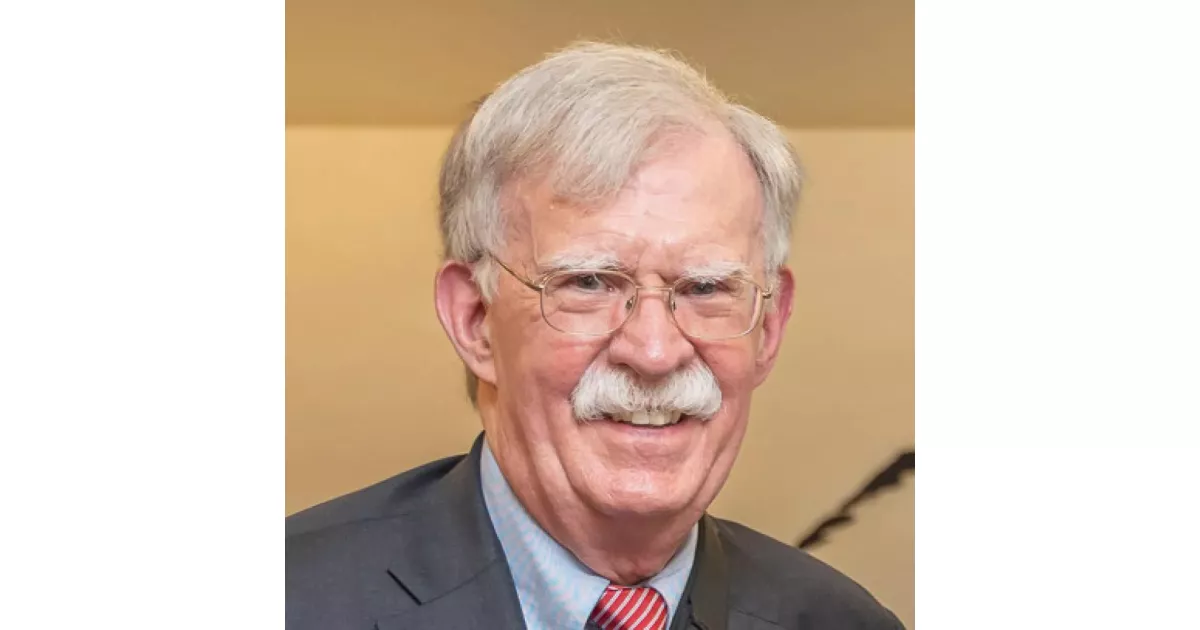From career breakthroughs to professional milestones, explore how John Bolton made an impact.
John Bolton is an American attorney, diplomat, and Republican consultant known for his hawkish foreign policy views. He served as the U.S. Ambassador to the United Nations (2005-2006) and as National Security Advisor (2018-2019).
1972: Summer intern for Vice President Spiro Agnew
In 1972, John Bolton worked as a summer intern for Vice President Spiro Agnew after being hired by David Keene.
1972: Biological Weapons Convention
The 1972 Biological Weapons Convention, was to be enforced.
1974: Associate at Covington & Burling
From 1974 to 1981, Bolton was an associate at the Washington, D.C. office of Covington & Burling.
1979: Mention of the Iranian Revolution
Prior to it being de-listed by the U.S. as a Foreign Terrorist Organization in 2012, Bolton spoke in favor of the People's Mujahedin of Iran (also known as the Mujahedin-e Khalq, or MEK), MEK has opposed the Iranian theocratic state since shortly after the 1979 Iranian Revolution.
1981: End of employment at Covington & Burling
In 1981, Bolton ended his employment at the Washington, D.C. office of Covington & Burling
1983: Returned to Covington & Burling
From 1983 to 1985, Bolton returned to the firm Covington & Burling.
1983: Executive Director at Republican National Committee
In 1983, John Bolton became the executive director of the Committee on Resolutions in the Republican National Committee, marking a significant step in his early career.
1984: Executive Director at Republican National Committee
In 1984, John Bolton continued his role as the executive director of the Committee on Resolutions in the Republican National Committee, continuing his work there from 1983.
1985: End of employment at Covington & Burling
In 1985, Bolton ended his employment at Covington & Burling.
1993: Partner in law firm of Lerner, Reed, Bolton & McManus
From 1993 to 1999, John Bolton was a partner in the law firm of Lerner, Reed, Bolton & McManus.
1997: Senior Vice President at AEI
In 1997, John Bolton became the senior vice president of the American Enterprise Institute (AEI), a conservative think tank, where he began writing columns criticizing the Clinton administration's foreign policy.
1997: Assistant to James Baker & Weekly Standard Contributor
In 1997, John Bolton began working as an assistant to James Baker and became a contributor to The Weekly Standard, showcasing his expertise in foreign policy and conservative thought.
1998: Signed letter urging removal of Saddam Hussein
In 1998, Bolton signed a letter to President Bill Clinton urging him to remove Saddam Hussein from power using U.S. diplomatic, political and military power.
1999: Left law firm of Lerner, Reed, Bolton & McManus
In 1999, John Bolton was no longer a partner in the law firm of Lerner, Reed, Bolton & McManus.
May 2000: Bustani Re-elected for a four-year term
In May 2000, José Bustani had been unanimously re-elected for a four-year term—with strong U.S. support
2000: Assistant to James Baker
In 2000, John Bolton concluded his role as an assistant to James Baker, reflecting a period of international engagement and diplomacy.
May 11, 2001: Sworn in as Under Secretary of State
On May 11, 2001, John Bolton was sworn in as the Under Secretary of State for Arms Control and International Security.
2001: Colin Powell praised Bustani's leadership
In 2001, Colin Powell praised José Bustani's leadership.
2001: End of AEI Vice Presidency
In 2001, John Bolton concluded his tenure as senior vice president of the American Enterprise Institute.
2001: Derailed biological weapons conference
In 2001, John Bolton was instrumental in derailing a biological weapons conference in Geneva. The conference was convened to endorse a UN proposal to enforce the 1972 Biological Weapons Convention.
2002: Demand for resignation of José Bustani
In 2002, John Bolton demanded the resignation of Brazilian José Bustani, head of the Organisation for the Prohibition of Chemical Weapons (OPCW), allegedly threatening Bustani's family.
2003: Alleged role in Bush's State of the Union Address
Democratic Congressman Henry Waxman alleged that Bolton played a role in encouraging the inclusion of the statement that British Intelligence had determined Iraq attempted to procure yellowcake uranium from Niger in Bush's 2003 State of the Union Address.
April 2004: Again Accused Cuba
In April 2004, John Bolton again accused Cuba of being a terrorist and (biological weapons) threat to the United States.
June 2004: Congressional testimony on Iran
In June 2004 congressional testimony, John Bolton stated that Iran was lying about enriched uranium contamination.
March 7, 2005: Nomination as Ambassador to the UN
On March 7, 2005, John Bolton was nominated by President George W. Bush to the post of United States Ambassador to the United Nations.
April 11, 2005: Senate Foreign Relations Committee reviewed qualifications
On April 11, 2005, the Senate Foreign Relations Committee reviewed John Bolton's qualifications.
April 12, 2005: Senate panel focuses on allegations that Bolton pressured intelligence analysts
On April 12, 2005, the Senate panel investigated allegations that John Bolton pressured intelligence analysts. Former State Department intelligence chief Carl W. Ford Jr. labeled Bolton a "serial abuser" of power and contradicted Bolton's earlier testimony, claiming Bolton asked him to fire an intelligence analyst.
May 26, 2005: Senate Democrats postpone vote on Bolton's UN nomination
On May 26, 2005, Senate Democrats postponed the vote on John Bolton's UN nomination, initiating the first filibuster of the year. Democrats alleged that the Bush administration withheld key documents regarding Bolton's career at the Department of State.
June 20, 2005: Senate vote on cloture regarding Bolton's nomination fails
On June 20, 2005, the Senate voted on cloture for John Bolton's UN nomination, but the vote failed. Senator Voinovich switched his previous "yes" vote and urged President Bush to pick another nominee. Later, Voinovich recanted his opposition.
July 28, 2005: Bolton's statement to the Senate deemed false
On July 28, 2005, it was revealed that John Bolton made a false statement on forms submitted to the Senate. Bolton had stated he hadn't been questioned in any investigation, but he had been interviewed by the State Department's Inspector General regarding pre-war claims of weapons of mass destruction in Iraq. The State Department later reversed its stance, claiming Bolton had simply forgotten about the investigation.
August 1, 2005: Recess appointment as Ambassador to the UN
On August 1, 2005, John Bolton was recess-appointed as the United States Ambassador to the United Nations due to a Democratic filibuster.
August 2005: IAEA report on Iranian uranium
At their August 2005 meeting the IAEA's Board of Governors concluded: "Based on the information currently available to the Agency, the results of that analysis tend, on balance, to support Iran's statement about the foreign origin of most of the observed HEU [highly enriched uranium] contamination."
2005: Limited role in Libya WMD negotiations
According to a 2005 study, Bolton's role in negotiations with Libya regarding their weapons of mass destruction program was intentionally limited to ensure a final agreement could be reached.
February 2006: Voinovich changes his view on Bolton's nomination
In February 2006, Senator Voinovich, who previously opposed John Bolton, amended his views and determined that Bolton was doing a "good job" as UN ambassador. Voinovich stated that he spends a lot of time with John on the phone and believes he is working constructively.
July 27, 2006: New confirmation hearing held for Bolton as U.N. ambassador
On July 27, 2006, a new confirmation hearing was held for John Bolton's nomination as U.N. ambassador, in the hope of completing the process before the expiration of Bolton's recess appointment at the end of the 109th Congress.
November 9, 2006: Renomination for UN Ambassador
On November 9, 2006, President George W. Bush sent the nomination for John Bolton to continue as representative for the United States at the UN.
December 4, 2006: Bolton announces he will terminate his work as U.S. representative to the UN
On December 4, 2006, John Bolton announced he would terminate his work as U.S. representative to the UN at the end of his recess appointment and would not continue to seek confirmation. His letter of resignation from the Bush administration was accepted on December 4, 2006, effective when his recess appointment ended December 9 at the formal adjournment of the 109th Congress.
December 5, 2006: Wall Street Journal publishes op-ed supporting Bolton
On December 5, 2006, a Wall Street Journal op-ed by Claudia Rosett stated that John Bolton had been valiant in his efforts to clean up UN corruption and malfeasance, and follow UN procedure in dealing with such threats as a nuclear North Korea, a Hezbollah bid to take over Lebanon, and the nuclearization of Hezbollah's terror-masters in Iran.
2006: Fox News Contributor and AEI Senior Fellow
In 2006, John Bolton became a paid Fox News contributor and a senior fellow at the American Enterprise Institute, solidifying his role as a prominent voice in conservative media and policy circles.
2006: Returns to American Enterprise Institute
In 2006, after leaving the George W. Bush Administration, John Bolton returned to the American Enterprise Institute as a Senior Fellow.
2007: Commented on the mistake made in Iraq
In 2007, Bolton stated that the only mistake the United States made with regard to Iraq was not leaving earlier after the overthrow of Saddam Hussein.
2008: Opposed Kosovo's declaration of independence
During 2008, Bolton opposed the declaration of independence by Kosovo.
2008: Of counsel at Kirkland & Ellis
From 2008 until his appointment as National Security Advisor in 2018, John Bolton was of counsel in the Washington, D.C. office of Kirkland & Ellis.
2008: Campaign against EU integration
In 2008, Bolton campaigned in Ireland against further European Union integration, and he criticized the Treaty of Lisbon for expanding EU powers.
2010: Co-founded the Friends of Israel Initiative
In 2010, Bolton co-founded the Friends of Israel Initiative with 12 other international figures.
2010: Director, Foreign and Defense Policy Studies for AEI
In 2010, John Bolton became the Director, Foreign and Defense Policy Studies for AEI.
2010: Bolton wrote a foreword for The Post-American Presidency
In 2010, John Bolton wrote a foreword for the book "The Post-American Presidency: The Obama Administration's War on America" by Pamela Geller and Robert Spencer, endorsing the book and its critique of Barack Obama.
December 31, 2010: Cover of National Review Magazine
On December 31, 2010, John Bolton received attention in conservative circles, including being featured on the cover of National Review magazine.
September 2011: Commented on the death of Anwar al-Awlaki
In September 2011, Bolton commented on the Obama administration's announcement of the death of Al Qaeda target Anwar al-Awlaki in Yemen, cautioning against overstating the significance of the event.
September 2011: Bolton Declines Presidential Run
In September 2011, John Bolton announced that he would not run for president in 2012, despite earlier consideration.
January 2012: Endorsement of Mitt Romney
In January 2012, John Bolton endorsed Mitt Romney for the 2012 Republican nomination for president.
2012: Bolton spoke in favor of the People's Mujahedin of Iran
Bolton spoke in favor of the People's Mujahedin of Iran (also known as the Mujahedin-e Khalq, or MEK), prior to it being de-listed by the U.S. as a Foreign Terrorist Organization in 2012.
2012: Considered Presidential Run
In 2012, John Bolton considered running for president of the United States. He ultimately decided not to run.
2012: Robert Mercer Donation to Super PAC
In 2012, Robert Mercer was among the major donors to the John Bolton Super PAC.
July 2013: Identified as Member of Groundswell
In July 2013, John Bolton was identified as a key member of Groundswell, a secretive coalition of right-wing activists and journalists attempting to advance political change through lobbying.
2013: Chairman of Gatestone Institute
In 2013, John Bolton became the chairman of the Gatestone Institute, a far-right anti-Muslim organization known for disseminating false anti-immigrant and anti-Muslim information.
2013: John Bolton Super PAC Founded
In 2013, John Bolton established the John Bolton Super PAC to support Republican candidates, marking his further involvement in political fundraising and campaigns.
2013: Commented on Edward Snowden's asylum in Russia
In 2013, after NSA whistleblower Edward Snowden had been granted asylum in Russia, Bolton suggested doing things that cause Putin pain to focus his thinking.
2014: Contributor to The Weekly Standard
In 2014, John Bolton resumed his role as a contributor to The Weekly Standard, showcasing his continued involvement in conservative media.
2014: Super PAC Activities in 2014 Elections
In 2014, the John Bolton Super PAC supported candidates such as Scott Brown in his bid for a U.S. Senate seat for New Hampshire, utilizing voter data analysis and digital video ad targeting.
2014: Super PAC Payments to Cambridge Analytica
Since 2014, the John Bolton Super PAC had paid Cambridge Analytica more than $1.1 million for 'research' and 'survey research', according to the Center for Public Integrity's analysis of campaign finance filings.
September 2015: Senior advisor at Freedom Capital Investment Management
In September 2015, Freedom Capital Investment Management appointed John Bolton as a senior advisor.
September 2016: Super PAC Support for Richard Burr
In September 2016, John Bolton's Super PAC announced it would spend $1 million on Senator Richard Burr's reelection effort, targeting ads at social media users and Dish Network and Direct TV subscribers.
December 1, 2016: Bolton considered for Secretary of State in the Trump administration
On December 1, 2016, John Bolton admitted on Fox News' Fox and Friends that he was being considered as a Secretary of State candidate for the incoming Trump administration.
December 2016: Bolton comments on Russian interference in the 2016 election
In December 2016, John Bolton stated that the United States Intelligence Community's conclusion that Russian hackers had intervened to help elect Donald Trump in 2016 may have been a "false flag" operation. In a subsequent interview on Fox News, Bolton criticized the Obama administration's retaliatory sanctions as insufficient and suggested that the US response should "make them [the Russians] feel pain".
2016: Praised UK's referendum vote to leave the EU
In 2016, Bolton praised the United Kingdom's referendum vote to leave the European Union.
2016: Received $40,000 for speech to MEK
In 2016, Bolton was given $40,000 for his speech to MEK (People's Mujahedin of Iran).
2016: End of Contribution to The Weekly Standard
In 2016, John Bolton ended his second stint as a contributor to The Weekly Standard, concluding his regular contributions to the conservative opinion magazine.
2016: Robert Mercer Donation to Super PAC
In 2016, Robert Mercer was among the major donors to the John Bolton Super PAC.
2016: Russian interference in the United States elections
In a June 2017 article, Bolton called Russian interference in the 2016 United States elections "a true act of war."
2016: Super PAC Spending in 2016 Election
In the 2016 presidential election, the John Bolton Super PAC spent around $2.5 million in support of Republican U.S. Senate candidates, with more than $811,000 paid to Cambridge Analytica.
February 2017: Bolton Interviewed for National Security Advisor Position
In February 2017 President Trump interviewed John Bolton and three others to determine who would fill the position of National Security Advisor vacated by Lt. Gen. Michael T. Flynn. The position ultimately went to H. R. McMaster.
June 1, 2017: Speech for the MEK in a gathering in Paris, France
On June 1, 2017, Bolton made a speech for the MEK in a gathering in Paris, France, and received $40,000 of speaking fee for "Global Events–European Iranian Events".
June 2017: Called Russian interference an act of war
In a June 2017 article, Bolton called Russian interference in the 2016 United States elections "a true act of war."
August 28, 2017: Published proposal on how to withdraw from the Iran deal
On August 28, 2017, Bolton published his proposal on how to withdraw from the Iran deal in a National Review Online article.
2017: Testified on moving U.S. embassy to Jerusalem
In 2017, Bolton testified in front of Congress supporting moving the U.S. embassy in Israel to Jerusalem in accordance with the Jerusalem Embassy Act.
2017: Income from Fox News
In 2017, John Bolton reported an income of $569,000 from Fox News, illustrating the financial aspect of his media career.
2017: Reported Income and Speaking Fees
In 2017, John Bolton's total income was reported as $2.2 million, which included $569,000 from Fox News and $747,000 in speaking fees from various organizations like the Victor Pinchuk Foundation, Deutsche Bank, and HSBC.
January 2018: $1 Million Ad Campaign
In January 2018, John Bolton announced a $1 million advertising campaign in support of Kevin Nicholson's bid for the Republican nomination to run against incumbent Democratic Senator Tammy Baldwin of Wisconsin.
March 6, 2018: Bolton seen at the White House as a candidate for National Security Advisor
On the evening of March 6, 2018, John Bolton was seen at the White House, presumably to be interviewed as a candidate for national security advisor.
March 2018: Called for regime change in Iran
In March 2018, Bolton spoke to a meeting of Iranian exile group Mujahedin-e-Khalq and said the Trump administration should follow the goal of regime change in Iran.
March 2018: Suggested South Korea take North Korea
In March 2018, Bolton suggested that South Korea take North Korea and terminate the North Korean regime as the only "diplomatic option", and said that the war between the two countries is their problem and not the United States' problem.
March 2018: Departure from Gatestone Institute
In March 2018, John Bolton left his position as chairman of the Gatestone Institute, a far-right anti-Muslim organization.
March 2018: Appointment as National Security Advisor
In March 2018, after John Bolton was appointed National Security Advisor, the John Bolton Super PAC and the John Bolton PAC announced a temporary suspension of their political activities.
March 19, 2018: $278,000 Television and Radio Ad Campaign
On March 19, 2018, the John Bolton Super PAC announced a two-week $278,000 television and radio ad campaign in the Milwaukee area.
March 22, 2018: Bolton to replace McMaster as National Security Advisor
On March 22, 2018, it was reported that John Bolton would replace H. R. McMaster as National Security Advisor, which was confirmed by Trump in a tweet later that day.
March 31, 2018: Super PAC Activities Suspended
Effective March 31, 2018, the John Bolton Super PAC and the John Bolton PAC suspended their political activities temporarily after John Bolton's appointment as National Security Advisor.
April 9, 2018: Bolton begins position as National Security Advisor
On April 9, 2018, John Bolton began his position as National Security Advisor.
April 10, 2018: Bossert resigns at Bolton's request, Bolton considers NSC merger
On April 10, 2018, Homeland Security Advisor Tom Bossert resigned at John Bolton's request, and Bolton said he was considering a merger of the NSC with the Homeland Security Council. Bolton also requested and obtained the resignations of multiple National Security Council (NSC) employees including Nadia Schadlow on April 10.
April 2018: Named National Security Advisor
In April 2018, Bolton was named to succeed McMaster as National Security Advisor.
April 2018: Bolton pressed Trump to withdraw from the Iran Nuclear Deal
In April 2018, John Bolton pressed President Trump to withdraw from the Iran Nuclear Deal, which Trump did a month later.
May 8, 2018: Bolton dissolved the Global Health Security team
On May 8, 2018, John Bolton removed Timothy Ziemer and dissolved his Global Health Security team formerly on the NSC leaving the administration's high level preparation for and ability to respond to pandemics, infectious disease, and other biological threats unclear. The choice to remove and not replace Ziemer in the midst of an emerging Ebola outbreak in The Democratic Republic of Congo was criticized in several news outlets.
May 2018: Estimate of Bolton's payments from MEK
In May 2018, a journalist estimated that Bolton was paid "on the low-end, $180,000" for his involvement with the MEK.
July 2018: Referred to the investigation into Russian interference as "the Russia witch hunt"
In July 2018, as Trump's national security advisor, Bolton referred to the investigation into the Russian interference as "the Russia witch hunt".
September 10, 2018: Bolton criticizes the International Criminal Court in first major address
On September 10, 2018, in his first major address as National Security Advisor, John Bolton criticized the International Criminal Court, saying it lacks checks and balances, exercises "jurisdiction over crimes that have disputed and ambiguous definitions," and has failed to "deter and punish atrocity crimes."
September 2018: Bolton shrinks the number of NSC personnel
CNN reported in September 2018 that John Bolton had significantly shrunk the number of NSC personnel, cutting it to under 300.
October 2018: Commented on withdrawing from the Intermediate-Range Nuclear Forces Treaty
In October 2018, Bolton said that one of the reasons for the United States' move to withdraw from the Intermediate-Range Nuclear Forces Treaty with Russia was to counter a Chinese arms buildup in the Pacific, as China is not a signatory to the treaty.
November 1, 2018: Bolton praises Bolsonaro and Duque
On November 1, 2018, John Bolton, as National Security Advisor, praised Brazil's president-elect Jair Bolsonaro and Colombia's president Iván Duque Márquez as "like-minded" partners and framed Bolsonaro's election victory as a "positive sign" for Latin America. He also criticized Cuba, Venezuela, and Nicaragua as a "troika of tyranny" in the speech on November 1, 2018.
2018: Continued support for the invasion of Iraq
By 2018, Bolton continued to stand by his support of the U.S.-led invasion of Iraq.
2018: Criticized Washington's One-China policy
In 2018, Bolton criticized Washington's One-China policy, under which Taiwan is not recognized as an independent nation.
2018: Remarks on China's notoriety in intellectual property matters
In 2018, Bolton remarked that "There's simply no excuse for the stealing of intellectual property, forced technology transfers it's sometimes called."
2018: Stated goal of regime change in Iran
In 2018, Bolton stated that Russia, China, Syria, Iran, North Korea are regimes that make agreements and lie about them, and his goal should be regime change in Iran.
2018: Commented on US policy regarding Kosovo
In 2018, Bolton stated that US policy on Kosovo is that if the two parties can work it out between themselves and reach agreement, the US does not exclude territorial adjustments.
2018: Appointment as National Security Advisor
In 2018, Bolton was appointed as National Security Advisor.
2018: End of AEI Directorship
In 2018, John Bolton concluded his role as Director, Foreign and Defense Policy Studies for AEI.
January 2019: Advocated for a hard Brexit
In January 2019, Axios reported that Bolton continued to advocate for a hard Brexit as National Security Advisor.
August 2019: Bolton's Book Alleges Trump Froze Ukraine Aid
In August 2019, according to a forthcoming book reported by The New York Times, Bolton wrote that President Trump wanted to continue freezing Ukraine aid until investigations into Democrats, including the Bidens, were pursued.
September 10, 2019: Trump claims Bolton's services are no longer needed; Bolton contradicts claim
On September 10, 2019, President Trump claimed on Twitter that he had told John Bolton on September 9 his "services are no longer needed", thus Bolton gave his resignation on September 10. Just minutes later, Bolton contradicted Trump's account, tweeting out this claim: Bolton offered to resign on September 9, with Trump replying: "Let's talk about it tomorrow."
November 7, 2019: Refusal to Attend Impeachment Deposition
On November 7, 2019, John Bolton refused to attend his scheduled deposition in the impeachment inquiry against Donald Trump. He threatened legal action if subpoenaed, stating his willingness to testify pending a federal court ruling on the Trump administration and Congress's competing claims.
December 2019: Memoir Submitted for Security Review
In December 2019, John Bolton submitted his memoir, "The Room Where It Happened," for security review, a standard procedure given his security clearance.
2019: Commented on celebrating in Tehran before 2019
Bolton, in March 2018, speaking to a meeting of Iranian exile group Mujahedin-e-Khalq, said that "before 2019, we here will celebrate in Tehran!"
2019: Sabotaged Trump's attempts to open diplomatic channels with Iran
In 2019, Bolton, Israeli Prime Minister Benjamin Netanyahu and Secretary of State Mike Pompeo successfully sabotaged Trump's attempts to open diplomatic channels with Iran.
January 3, 2020: Commented on the death of Qasem Soleimani
On January 3, 2020, after the death of Qasem Soleimani, Bolton tweeted that the airstrike was a "decisive blow against Iran's malign Quds Force activities worldwide" and expressed hope for regime change in Tehran.
January 6, 2020: Announcement of Willingness to Testify
On January 6, 2020, John Bolton announced in a written statement obtained by NBC News that he would testify during the Senate impeachment trial if subpoenaed. A 51-vote majority from the Senate would be required to obtain the subpoena.
January 28, 2020: Trump's Lawyer Dismisses Bolton's Claims
On January 28, 2020, Trump impeachment lawyer Jay Sekulow dismissed Bolton's claims from his leaked book as "inadmissible" during Senate defense arguments. This dismissal, according to Democratic trial manager Adam Schiff, validated the argument to call Bolton to testify.
June 16, 2020: Justice Department Attempted to Block Publication
On June 16, 2020, the Trump Justice Department attempted to block the publication of John Bolton's memoir, "The Room Where It Happened," seeking to confiscate his $2 million advance for breach of contract.
January 20, 2021: Chinese government imposed sanctions against Bolton
On January 20, 2021, the Chinese government imposed sanctions against Bolton and 27 other Trump administration officials for interfering in China's internal affairs and undermining China-U.S. relations.
June 2021: Justice Department Dropped Criminal Inquiry
In June 2021, the Justice Department dropped its criminal inquiry of John Bolton and moved to end efforts to confiscate proceeds from his book.
July 2022: Admission of involvement in coups d'état
In July 2022, during an interview with CNN, John Bolton admitted to his personal involvement in planning unspecified coups d'état in foreign countries.
March 2023: Defended the decision to invade Iraq
In March 2023, Bolton defended the decision to invade Iraq, citing concerns about Saddam Hussein's pursuit of nuclear weapons and potential provision to terrorist groups.
July 6, 2023: Hailed US provision of cluster munitions to Ukraine
On July 6, 2023, Bolton hailed U.S. President Joe Biden's decision to approve the provision of cluster munitions to Ukraine as "an excellent idea".
December 2023: Proposed resettling Palestinians from Gaza
In December 2023, Bolton proposed resettling Palestinians from Gaza.
April 2024: Commented on the Gaza war
In April 2024, Bolton said that the Gaza war "is an Iranian war against Israel, fought through terrorist proxies", and the only way to end the suffering of the people of Gaza "is to eliminate Hamas, which is the cause of the suffering."
2024: Considered Presidential Run
In 2024, John Bolton considered running for president of the United States in order to secure the Republican nomination against Donald Trump. However, he had been widely ridiculed for proposing running for president.
July 2025: Suggested Algeria offer gift to Trump for Western Sahara recognition
In July 2025, Bolton suggested that Algeria offer Donald Trump a gift to abandon American recognition of Moroccan sovereignty over Western Sahara.
September 2025: Criticized Trump's tariff imposed on India
In September 2025, Bolton criticized Trump's 50% tariff imposed on India over India's trade with Russia and questioned why similar tariff measures weren’t applied to China, Turkey, or Pakistan. He also criticized Trump's claim about his role in peace between India and Pakistan after the 2025 Pahalgam Attack and the subsequent 2025 India-Pakistan conflict.
Mentioned in this timeline

Donald John Trump is an American politician media personality and...

Adam Schiff is an American politician and lawyer currently serving...
Fox News Channel FNC is a conservative American news and...

Bill Clinton served as the nd U S President from...
Ukraine is a country in Eastern Europe the second-largest on...

Hillary Diane Rodham Clinton is a prominent American politician lawyer...
Trending

15 minutes ago Evan Mobley excited to play with James Harden; Cavaliers gain confidence.

15 minutes ago Sutton Stracke's Ex-Husband Christian Dating Her Friend: Shocking Details Revealed!

15 minutes ago Aday Mara: NBA Draft Prospect, Michigan Center, Scouting Report and Potential Overview.

16 minutes ago Cade Cunningham's MVP candidacy sparks debate alongside Wembanyama amidst NBA awards buzz.
16 minutes ago Nikola Vucevic possibly coming off Celtics' bench; Queta seeks his advice.

16 minutes ago Katie Leung Offers Advice to New Cho Chang Actress & Discusses Bridgerton Role.
Popular

Jesse Jackson is an American civil rights activist politician and...

XXXTentacion born Jahseh Dwayne Ricardo Onfroy was a controversial yet...

Michael Joseph Jackson the King of Pop was a highly...

Susan Rice is an American diplomat and public official prominent...

Barack Obama the th U S President - was the...

Hillary Diane Rodham Clinton is a prominent American politician lawyer...

